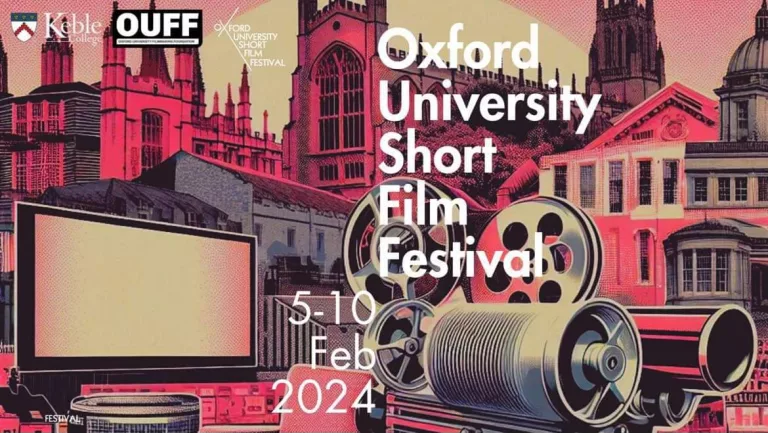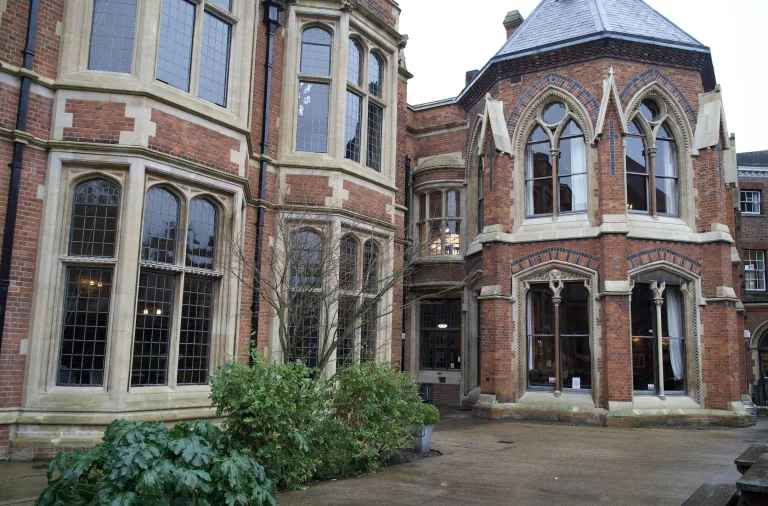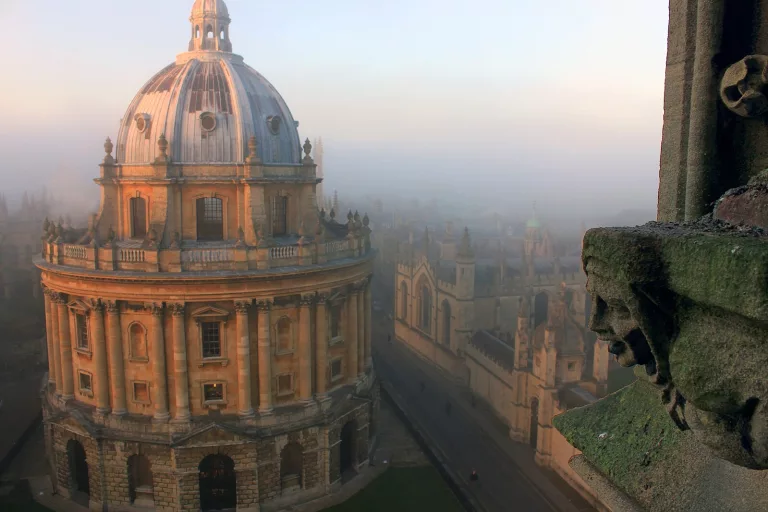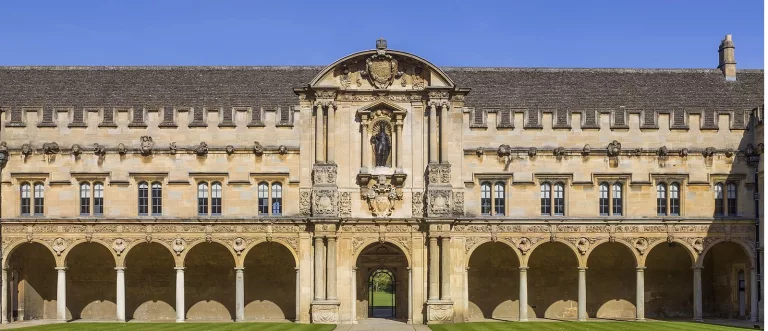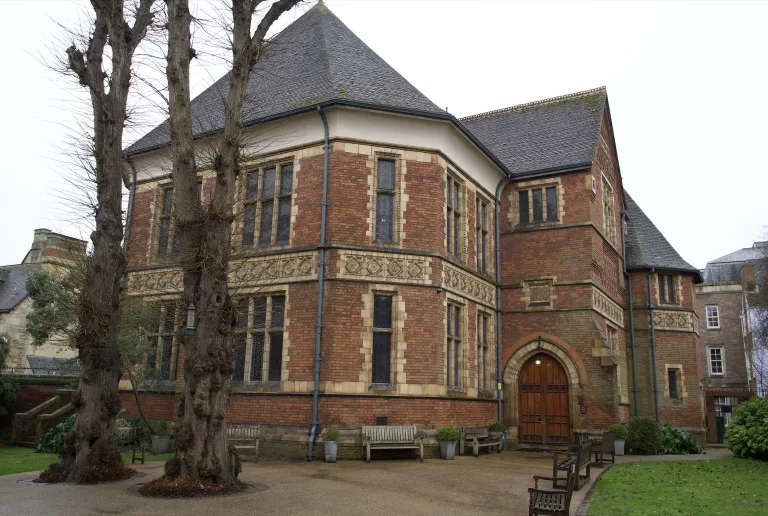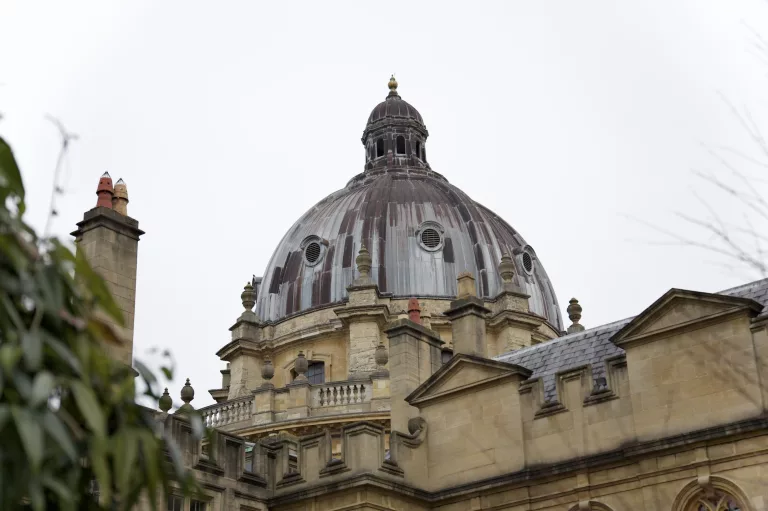CW: references to war, death, racism, drink spiking, homophobia
The Keble O’Reilly was yet again packed for the last night of what has, by all accounts, been a fantastically successful run for the Oxford University Short Film Festival (OUSFF). Showing 25 films in total, this year was a first for OUSFF in opening their submissions to student filmmakers beyond Oxford. The result was an eclectic and exciting range of films made by some truly talented student filmmakers and recent alumni.
Nighty Night, Dear
The first film of the evening was Nighty Night, Dear, an endearingly nostalgic tale about a mischievous magician, Koko (Mollie Milne), sleep deprived from the nightly recollection of embarrassing moments. Nighty Night, Dear playfully literalises these memories as film negatives produced by a magical contraption, which Koko then categorises in archives including the highly relatable ‘being an idiot’. Jealous of young boy Josh’s anxiety-free sleep, Koko decides to send Josh memories of his own mistakes. The result is a cheekily poignant coming-of-age narrative thanks to lively performances from Koko and Josh. The film’s cinematography was particularly impressive: bathed in a warm, ‘vintagey’ palette reminiscent of Kodak Gold, Nighty Night, Dear evoked the twilight mellowness of childhood found in many a Roald Dahl or Dr. Seuss story. This was further aided by the narrator’s gentle voiceover and close-up shots, used adroitly to convey Koko and Josh’s dream-like states. The film also made great use of the contrast between live action and animation, creating Koko’s house and the evening sky out of cardboard stop-motion. The blurring of fantasy with reality gave the film a tactile, magic realist quality in its charming exploration of innocence and self-awareness.
Ghost Insurance
Another film which comically exploited our insecurities was Ghost Insurance, which featured a well-acted performance from salesman Paul. Paul, however, is not your average salesman: he sells “ghost insurance”, which claims to cover for any unexplained happenings around the home including smashed vases and stray socks. The dialogue between Paul’s prospective clients – a gullible father and his cynical daughter – was hilariously effective, drawing laughs from the audience as Paul gestured to the invisible presence of “Errol”, his phantom coworker. Within its sharply economical form, the film managed to deliver several punchlines in quick succession, such as the telling jingle attached to Paul’s business card: ‘my dead wife keeps accusing me of murder!’. Ghost Insurance effortlessly parodied the aesthetic of insurance adverts, cleverly playing with the sinister capacity for such companies to profit off our superstitions through a delightful twist at the end.
Punchbowl
Punchbowl, directed by Mia Sorenti, also managed to deftly balance humour with more sinister themes. The film follows two university students, confident Nina and hesitant Liv, as they attempt to graft their way onto the women’s hockey team through Nina’s ‘lesbian power game’. Quite the opposite occurs as Nina and Liv find themselves plunged into the aggressively white, heterosexual world of Oxford’s secret societies. The ‘Tuesday Club’ comprises a group of pompous, neo-Nazi Etonian alumni unapologetically advocating for a ‘colonial comeback’, and Nina suspects one of its members of spiking drinks after finding some dubious substances. The aftermath, however, is startlingly funny, offering an inventive take on what can sometimes be a rather hackneyed portrayal of Oxford’s elitism, following in the footsteps of The Riot Club. Whilst the film suffered at times from muffled audio from Nina and oversaturation, the script worked effectively alongside its short format. Darkly funny, Punchbowl perceptively lingers at the gothic borderland, reminding us that despite Nina and Liv’s lucky escape, Oxford’s sinister underbelly maintains the potential for more predatory events to occur.
The Pacifist
The second film of the evening set in Oxford, The Pacifist transports us back to a true story from 1940 straight from University College’s archives. The film follows 19 year old student John Fulljames, a conscientious objector whose mental health rapidly declines as he is called for conscription, leading him to shoot two students and be sentenced to Broadmoor for schizophrenia. The period set’s exquisite detail and cinematography were excellent, presenting an unusually sparse Oxford in a beautiful subtlety of light which contrasted with the intensity of the students’ debates. The Pacifist sensitively reveals the oft-neglected history of WWII’s psychological impact as the conflicts between John and his peers bleed into questions of sexuality and masculinity. There is a palpable homoerotic subtext to John’s sensuous appreciation of Univ’s Shelley statue, who was famously expelled from Oxford for refusing to disavow his atheist convictions. However, the film’s singular female character disappointingly appeared only as an ephemeral, seductive presence to soothe John’s psychological distress. As the longest film of the night, The Pacifist also suffered from some pacing issues, but its lengthy monologues contained excellent lines such as John’s protestation: ‘I won’t have my rotting body fertilise France’s soil’.
A Ticket to Hell
Also questioning the meaning of war was A Ticket to Hell, a film that brought the nihilism of armed conflict to its literal extreme with an emotive score. A soldier is not told where he is, or who he is fighting, but is instructed to follow his officer’s orders with little justification. Three spectral presences visit the soldiers to caution against perpetuating a cycle of endless violence which they too participated in, long ago in a forgotten past. At times, the film risks slipping into more cliched representations of war in its montages of violence against childhood innocence. However, the overlaying of the soldier’s diary entries invites more compelling questions about memory, bringing the universality of war in tension with the personal. The act of inscription makes room for subjective, even spiritual experience by problematising the capacity to write and remember war objectively, despite the officer’s attempts to anonymise the conflict and reduce it to its most banal parts.
I tend to approach student productions with a degree of scepticism, but the festival’s final night gave us some truly impressive films which balanced serious topics with quick-wittedness and skillful cinematography. The evening’s success was also thanks to the hard work of the OUSFF team, which has clearly paid off.
The award for Oustanding Film was given to Je Veux Danser. Beijing Pigons won the People’s Choice Award.


